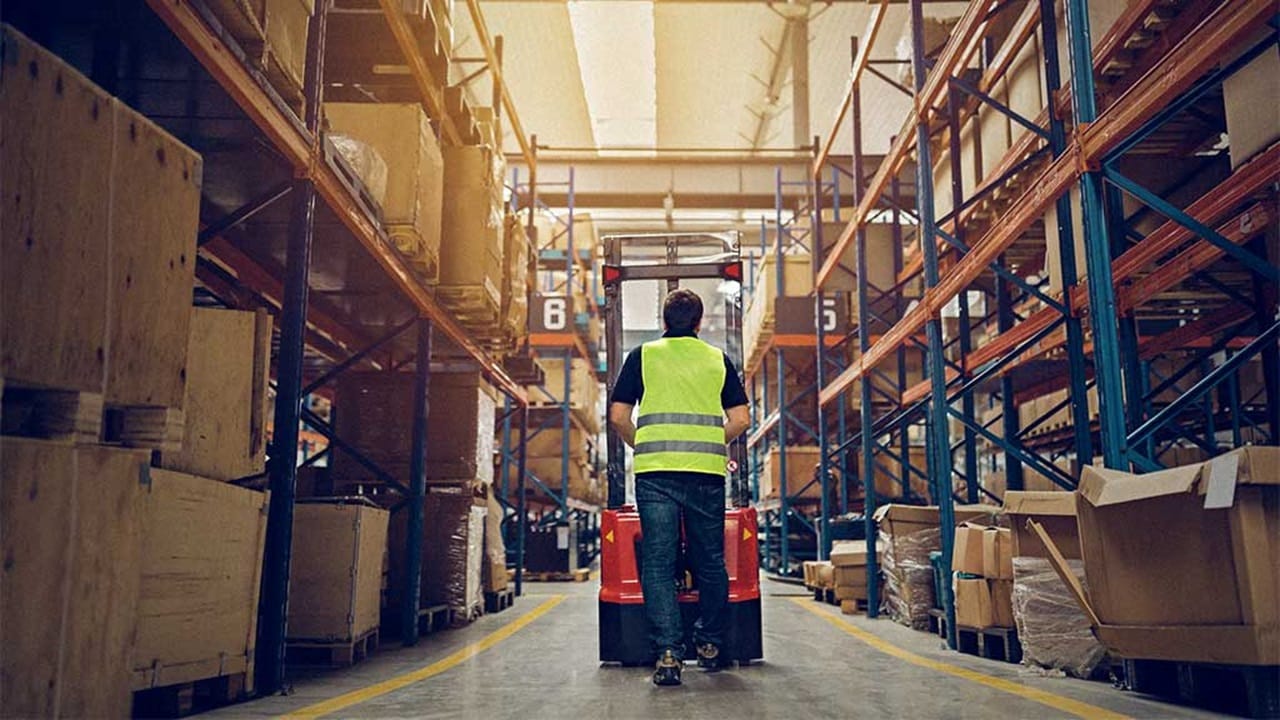With pressure on UK retailers due to the increased cost of living, rising prices and geopolitical disruption, the last thing companies need are delays or costs caused by customs clearance issues. Yet complexity is embedded in the customs environment – even four years after Brexit. It only takes a paperwork mistake, a wrong commodity code or incorrectly following regulations for problems to arise.
If it’s hard to make sense of the current landscape, it’s even harder to know what the future holds. A new UK government could bring with it new legislation. So given that customs complexity is likely here to stay – understanding the present situation, anticipating tomorrow’s possibilities and opportunities, and using partners with their finger on the pulse can help to alleviate the challenge. To remove risk, save time and costs… and even facilitate market expansion and business growth.
UK-China trade: what today teaches us about tomorrow
We live in a time of trade tensions and uncertainty, with a trend towards an increasing amount of measures against China from the EU and the USA. The US revoked certain licenses to sell microchips to Huawei; China announced anti-dumping penalties in response; and the EU levied its own anti-dumping duties on Chinese flame-retardants. When these issues impact China, they in turn impact many UK retailers who import from the region – and if you’re among them, you may be wondering what’s next.
Will a new UK government change the country’s approach to trade negotiations? It’s not yet clear whether the UK will replicate the overall trend towards increased trade measures against China. However, in some cases across legislation and trade agreements, the UK has adopted or reflected the EU’s approach, so it would be wise for any business importing from China to be aware of this possibility – and to ensure their broker partners are aware, too.
In the medium-term, the UK may see greater benefit from a new trade deal with eleven Asia and Pacific nations: the Comprehensive and Progressive Agreement for Trans-Pacific Partnership (CPTPP). The UK’s membership, which is still in the process of being ratified, could loosen restrictions on trade and reduce tariffs on goods – if businesses actively take advantage of the agreement. China is not a member – the nation has formally applied but some say its application is “unlikely to gain traction” – but other powerhouse Asian economies are, including Japan, Vietnam and Singapore. So, if uncertainty drives UK retailers to find alternative sourcing options in Asia, they could soon have new appealing partners to choose from.
A renewed focus
As the world’s focus turns increasingly towards environmental considerations, so too does legislation. The EU’s Carbon Border Adjustment Mechanism (CBAM) which charges a levy on carbon-intensive imports is likely to evolve from current goods like iron, steel, hydrogen and electricity to include more products such as coal and building materials.
The UK is considering implementing its own similar carbon border adjustment mechanism for which businesses would need to register. If it is to follow the same restrictions on iron and steel, companies importing items made from these materials – such as bed frames or kitchenware – need to consider this possibility in their planning.
Like the USA and the EU, the UK may also seek to implement deforestation regulations, wherein importers and exporters must prove their goods are deforestation-free. If the UK’s equivalent legislation was to include this regulation, then wood-based items from lumber to sofas and beds, and foods and pet foods containing oil palm, could be impacted by levies. Goods could be rejected if importers don’t comply – and mixed loads, of which 65% of all goods arriving in the UK are groupage shipments1, means the whole load could be rejected.

Halloween 2024: a new date for the customs diary
The UK’s Border Target Operating Model (BTOM) came into effect in January 2024, impacting importers of animal products, plants and plant products, and this Halloween marks another important step in its development.
The scheme is designed to modernise the border and speed up controls, and it means that border controls will be applied to over 5 million consignments annually (on which there were no previous checks), including low, medium and high-risk categorisations for plant and plant products from the EU.
This is a major change, with documentary checks, physical checks and identity checks on ‘medium risk’ products, as well as ‘high risk’ food and feed of non-animal origin. To use pet food as an example, when importing it into the UK, it is currently classified as a medium risk category, and so may be liable to identity and physical checks at a border facility, which can be as far as 40 km inland, away from the border.
Safety and Security declarations for imports from the EU will become mandatory on 31st October 2024, and failure to comply may result in delays at the border and to market – and eventual stock spoilage for perishables. If you haven’t yet prepared for BTOM, you should engage with everyone in your supply chain – including logistics providers and customs brokers – to make sure they are aware of the new processes.
Legislation to help, not hinder
The UK Single Trade Window (STW), currently in public beta testing before general release, is intended to reduce the cost of trade by streamlining trade interactions with border agencies. In time, it should enable businesses to complete Export Health Certificates, safety, security and import declarations in one digital hub, rather than in multiple different systems, managed by different border agencies. It's an ambitious project, but could be a big time and cost saver, especially if it digitises complex food product certificates or high-risk foods, for example. More will be known once the functionality of future releases is revealed.
Consider cost-saving opportunities
While legislation is unavoidable, soaring costs don’t have to be. Many retailers outsource customs requirements to brokers or transporters, but, their fee structure does not always allow for cost optimisation through reduction of duties or other costs and the use of free trade agreements. Maersk recommends reviewing the contracts you have to understand whether your partners are utilising all the available options.
If you currently trade under Delivered Duty Paid (DDP) terms, might other terms – like Delivered at Place (DAP) – help to offset the VAT? Can you apply a trade agreement or otherwise reduce duties? Are you at risk of paying double duties when moving goods and supplies between the rest of the world, the EU and the UK? Could you make better use of bonded warehouses as a means to defer duty payments and improve your cashflow? Interrogate your existing supplier relationships and goods flows to identify your cost-saving options.
Count on Maersk's support for UK retailers
When the future is uncertain, retailers need customs partners with their finger firmly on the pulse and their eyes scanning the horizon. Even if you have many hundreds of products, generating thousands of customs declarations and associated documentation, Maersk can help you untangle the complexity, ensure compliance and optimise your costs.
Our UK team is deeply involved in post-Brexit changes, new regulations and what to expect from future UK trade policies. We know the precise detail and differences between UK and EU regulations, where those lines cross and blur, and how they interact with other regulations in countries of origin or along trade routes. We work in unison with Maersk custom teams across the globe to provide solutions based on free trade agreements, amongst others.
Maersk is also uniquely placed as a supply chain integrator. We can combine customs services within an end-to-end supply chain solution, including ocean freight, bonded warehouses and road transport direct to retail stores to streamline your operations and improve resilience.
Get in touch to find out more about how Maersk keeps your retail goods flowing:

未来,您想随时了解必读行业趋势吗?
您已经完成了,欢迎“登船”!
很抱歉,发送您的联系请求时出现问题。
请查看表单字段,确保所有已正确填写所有必填信息。如果问题仍然存在,请联系我们的支持团队以获得进一步的帮助。
未来,您想随时了解必读行业趋势吗?
使用此表格注册,即可直接在您的邮箱中接收我们的洞察见解,进入一个真正的综合物流世界。简单操作,即从我们为您量身定做的精选文章中获得启发,了解相关行业洞察信息。您可以随时取消订阅。
I agree to receive logistics related news and marketing updates by email, phone, messaging services (e.g. WhatsApp) and other digital platforms, including but not limited to social media (e.g., LinkedIn) from A. P. Moller-Maersk and its affiliated companies (see latest company overview). I understand that I can opt out of such Maersk communications at any time by clicking the unsubscribe link. To see how we use your personal data, please read our Privacy Notification.
By completing this form, you confirm that you agree to the use of your personal data by Maersk as described in our Privacy Notification.













